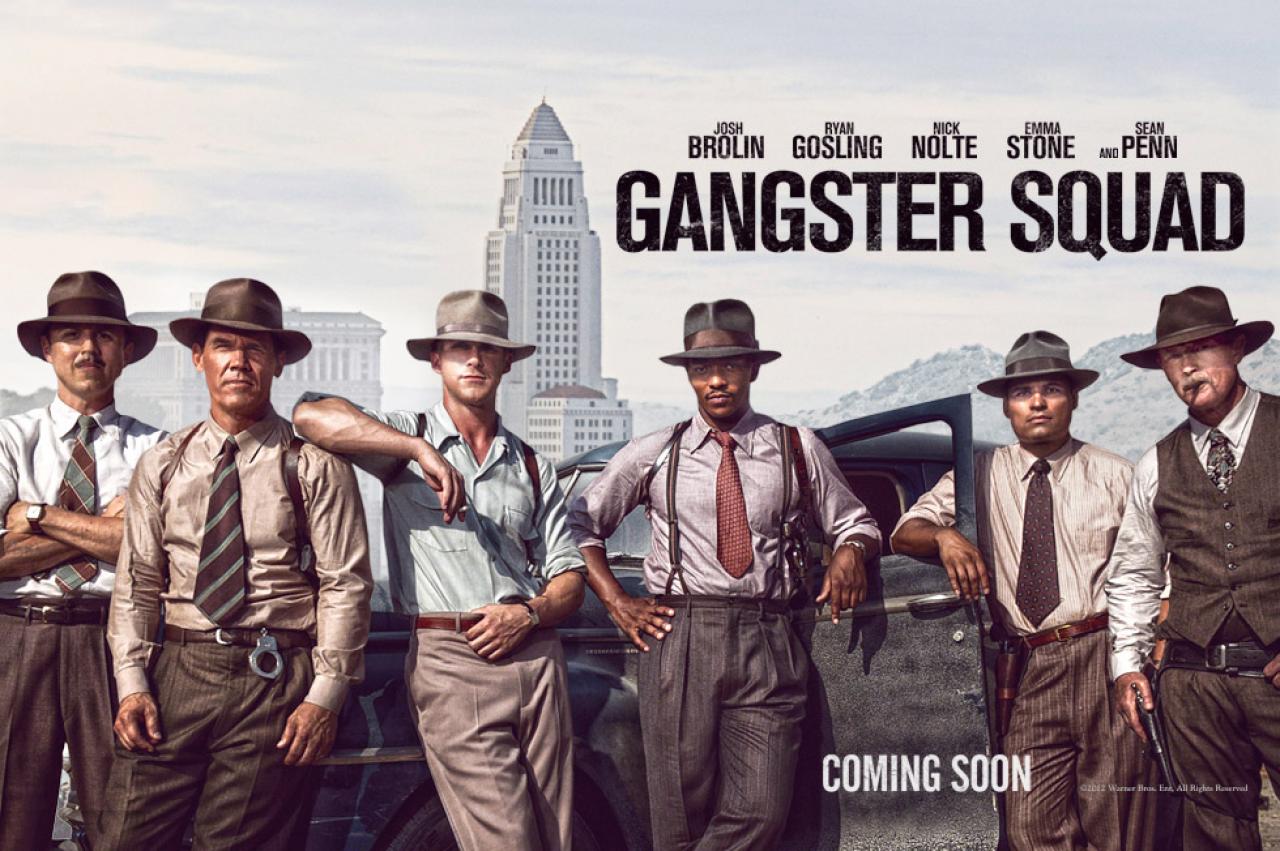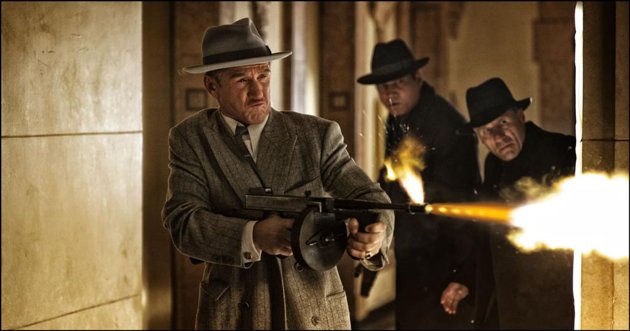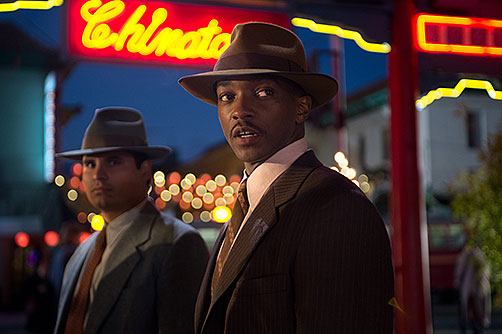First off, I just want to thank everybody who’s written in recently to say how much they’ve gotten out of the site the last few years, from the guy who just started writing a couple of weeks ago to even a couple of well-known Hollywood directors. It appears that while there was a highly vocal negative minority, there are thousands of writers/agents/producers/industry people who love the site and just don’t get into the politics of it. It almost made me reevaluate my decision. But for the time being, I’m encouraged by the new format. Change forces you to see everything in a new light, which often leads to new exciting ideas. And I want to explore some of those ideas in the months ahead.
For now, Monday will usually be a screenwriting-centered review of a new movie release (like today’s). Tuesday is going to be a “10 Screenwriting Tips You Can Learn From [Famous Movie]” article like the format I use in my book (this week’s is The Graduate). Wednesday is going to be a bit of a wild-card, but I’m going to try and use it to review unknown/weird/infamous/interesting screenplays from the past. Thursday will be an article. And Friday will be Amateur Friday.
Also, reviewing recent spec sales isn’t totally dead yet. The big complaint from the detractors seemed to be that I publicly posted reviews and/or sent scripts to people. So, once a week, privately via my newsletter, I’m going to review a recent/hot screenplay. These reviews won’t be posted on the site and you’ll have to go searching for the scripts yourselves, but at the very least, you’ll still be able to see what’s making noise in the industry and learn some screenwriting lessons in the process. It’s not ideal. And it sucks we won’t be able to discuss them. But it’s something. So if you’re not already on my mailing list, you’ll probably want to get on it now.
The Scriptshadow Labs will work its way into the line-up as I piece it together (a Macbook implosion and extensive data-recovery process has slowed things down a little – but don’t worry – we’ll get there). And I’ll probably be using the Tuesday and Wednesday slots to try some new stuff here and there. Here’s to seeing where it all goes! And now, Gangster Squad…
Genre: Crime/Period
Premise: A gang lord in 1949 Los Angeles becomes so big that the only way the cops can handle him is to go off-book and wage a war against his empire.
About: Gangster Squad (here’s my old script review – sorry, still haven’t gotten comments transferred over yet) is based on a number of articles from 1940s Los Angeles newspapers. In an offbeat choice, it was directed by Zombieland director Ruben Fleischer. It stars Ryan Gosling, Sean Penn, and Emma Stone. The script, written by newcomer Will Beall, was very well-received around town. Beall has since been announced as the writer for the Justice League movie. His other LA cop drama, L.A. Rex, landed high on the 2009 Black List, which is what jump-started his screenwriting career.
Writer: Will Beall (based on the book by Paul Lieberman).

I’m just going to say it. Ruben Fleischer was probably too light-weight of a choice to direct this. I’m all for taking chances on writers and directors. It’s one of the few ways careers can advance in this industry. But that’s the thing with taking chances. There’s a chance they won’t work out. I’d totally forgotten who’d directed this when I went to see it the other day, so I didn’t go in to pre-judge the directing by any means. But when I left, all I could think about was how light-weight the film felt. The look was too glossy (strange choice for a movie about gangsters). The sets (like the Chinatown sequence) felt overly “set-like.” And the casting, outside of Sean Penn, felt uninspired.
I mean this is actually a cool idea. There’s an untouchable gangster running LA. The police can’t compete with him legally. So the chief puts together an off-the-books “squad” who can act with impunity to take him down. Everything, however, depends on the casting of that squad. And here we have Josh Brolin, who’s plagued with a deadness to his acting. We have Anthony Mackie, who plays the African-American officer, who has zero film presence. We have the T-1000 himself, Robert Patrick, who screams “B-Movie.” We have Michael Pena, who’s as light and feathery as a crepe. And we have Giovanni Ribisi, who’s a great actor but doesn’t leave much of an impression here.
Even the major talent, Emma Stone and Ryan Gosling, feel like they’re acting more in a school play about gangsters than a 100 million dollar movie. There’s very little chemistry between the two and Gosling doesn’t carry one-tenth the weight he did in Drive. And Emma Stone just looks happy to have gotten this role so she can stretch her acting chops. Though she proceeds to do so mainly by batting her eyelashes and whispering a lot.
The only actor who carries any weight in this movie is Sean Penn, who is so far above all the other actors that his performance actually backfires, shining a light on just how over-matched everybody else is. As a first-time director, I’m not sure how much the studio bullied Ruben into these casting choices, but from my experiences, it’s usually the big actors that the studio pushes on the director, while letting them choose the lesser guys. And the lesser guys here were the movie’s downfall. The Squad was supposed to be badass. Unfortunately they turned out half-ass.
Which is too bad, because the script itself is pretty decent. It’s not great, but it’s improved from the older draft that I read in July. For those unfamiliar with the story, here’s a quick breakdown:
There’s this mob boss, Mickey Cohen, who’s running Los Angeles into the ground in 1949. If something isn’t done soon, the city will never recover. Enter Sgt. John O’Mara (Josh Brolin) the only clean cop in Los Angeles. He’s recruited to scramble together a “Gangster Squad” to take Cohen down. His key recruit is Sgt. Jerry Wooters (Ryan Gosling) a young selfish cop who finds it’s much easier to let the nasty dogs bark than get in the cage and shut them up. But when the bad guys kill Wooters’ shoe-shine kid (yes, one of the more unfortunate choices in the script), he does a 180, becoming O’Mara’s Number 1. Things get complicated, however, when Wooters falls for Cohen’s girl (played by Emma Stone).

First thing of note here is that the structure is pretty solid. You have the goal (Take down Mickey Cohen), the stakes (if you don’t, Los Angeles crumbles) and eventually the urgency (Cohen is constructing the only wire between Chicago and LA. If he completes it, which will happen by the end of the week, they’ll have no shot against him).
I’m pretty sure this ticking time bomb was an addition to the draft that I read, and it’s something I’ve been noticing more of lately. Some movies won’t establish their ticking time bomb right away. They instead choose to add it later, usually around the midpoint, as a way to up the stakes, as is seen here in Gangster Squad. Just as they’re getting a handle on Mickey, they find out about this wire he’s building which will give him absolute power. And they only have a week to stop it.
Still, I’m always nervous when long stretches of a screenplay don’t have SOME urgency attached to them. Which is why it might be a good idea to offer a temporary ticking time bomb before the major one arrives (if you choose to have the late arriving TTB). So in Gangster Squad, for example, maybe the word on the street is that the Mayor (who’s on Mickey’s payroll) is replacing Police Chief Parker with one of his guys any day now. So Parker makes it clear to O”Mara, “We don’t have a lot of time.” I’m not pretending this is a great idea. I’m just saying it never hurts to look for ways to create an immediacy to your protagonist’s actions.

Now, on the plus side, we have some pretty good (but not great) character development here. On Friday, I criticized the lack of character development in “The Last Ones Out,” saying that there were no real choices that the characters had to make. And character development is about establishing a flaw in your character, then giving him choices that challenge that flaw.
Take O’Mara for example. His flaw is that he puts his work above his family. When he’s given a choice early on to either do what’s safest for his family or form the Gangster Squad, he chooses the Gangster Squad. Over the course of the story, as things get more and more dangerous, he continues to choose his work over the safety of his family. This is character development. Tell us what defines your character, then throw choices at him that make him face this flaw in himself head on.
When it was all said and done, Gangster Squad left me appreciating what Scorsese does a lot more. The film will make Fleischer a much better director in the long-run, but learning the challenges of making a movie like this definitely had an effect on the final product. Gangster Squad failed to do the job for me.
[ ] what the hell did I just see?
[x] wasn’t for me
[ ] worth the price of admission
[ ] impressive
[ ] genius
What I learned: Lately I’ve been wondering if there’s a fault in the 3-Act structure. 95% of the movies and screenplays I see get late into the second act and experience this 10-15 minute “boring as hell” lag where all the relationships get resolved and slow dialogue scenes get stacked on top of each other, and the momentum is just sucked out of the story. Gangster Squad was just good enough to keep me watching, but once it hit that Late Second Act, it lost me for good. Specifically the scene where O’Mara and Wooters are sitting on the back porch, drinking, and talking about how things suck. I honestly haven’t figured out the best way to deal with this troubled section. You obviously need to wrap certain storylines up before the climax, but if there are too many “wrap-up” scenes in a row, you lose the audience/reader. Part of the problem may have been the huge character count in Gangster Squad. Too many characters, most of whom we don’t know (who the hell was the guy who hung out with Emma Stone the whole movie??), meant wrapping up character storylines we just didn’t care about. Maybe that’s the big lesson to take away from this. To lessen the length of this potential pitfall section, only include characters you absolutely need in your story. They’re the ones we’ll care about, and therefore the ones whose relationships we’ll WANT to see resolved late in the second act. Even still, I would try to keep this section as short as possible. It kills the momentum of so many screenplays/movies.

